On 22—25 January 2019 the World Economic Forum is holding its Annual Meeting in Davos-Klosters, Switzerland.
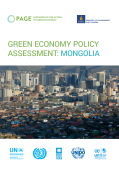
The Green Economy Policy Assessment report gives an overview of the current the policy and legal environment of four selected sectors in Mongolia: construction, solid waste management, energy and water management. The report also presents scenarios utilizing the Threshold 21 (T21) framework, jointly developed by the Millennium Institute, Ministry of Finance and Ministry of Environment and Tourism to test national targets and the effects of investing in a green economy in Mongolia. The report is also available in Mongolian.

The Sustainable Development Strategy (SDS): Egypt Vision 2030 is the first Egyptian strategy formulated in accordance with long-term strategic participatory planning. It utilised a variety of input to develop a pathway towards improved welfare and prosperity through sustainable development, social justice, and balanced growth.

The Sustainable Development Strategy (SDS): Egypt Vision 2030 is the first Egyptian strategy formulated in accordance with long-term strategic participatory planning. It utilised a variety of input to develop a pathway towards improved welfare and prosperity through sustainable development, social justice, and balanced growth.
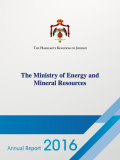
The report Ministry of Energy and Mineral Resources: Annual report 2016 produced annually provides the current state and the progress achieved throughout the year in Jordan's mineral resources and energy sector. The Ministry of Energy and Mineral Resources aims to set and develop the appropriate policies and legislation to achieve a secure sustainable supply of energy and the optimum utilization of natural resources that comply with international practices.
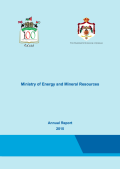
The report Ministry of Energy and Mineral Resources: Annual report 2015 produced annually provides the current state and the progress achieved throughout the year in Jordan's mineral resources and energy sector. The Ministry of Energy and Mineral Resources aims to provide all forms of energy required for sustainable development through the enhancement and implementation of proper policies, legislation, and energy efficiency in various sectors.
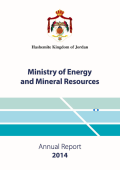
The report Ministry of Energy and Mineral Resources: Annual report 2014 produced annually provides the current state and the progress achieved throughout the year in Jordan's mineral resources and energy sector. The Ministry of Energy and Mineral Resources aims to provide all forms of energy required for sustainable development through the enhancement and implementation of proper policies, legislation, and energy efficiency in various sectors.
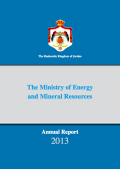
Jordan Ministry of Energy and Mineral Resources: Annual report 2013 provides annual progress achieved and challenges that need to be addressed regarding Jordan's energy security and mineral resource management. The mission is to ensure the required energy supply for sustainable development, with the least cost and best quality through enhancement and implementation of proper policies, legislation, and plans.
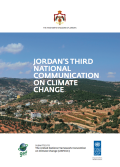
Jordan's Third National Communication on Climate Change provides a scientifically sound description of the projected impacts of climate change on Jordan, as well as a comprehensive mitigation assessment and a detailed inventory of GHG emissions.
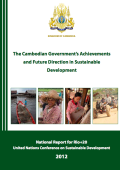
Formulated to present in the United Nations Rio+20 Conference on Sustainable Development The Cambodian Government's Achievements and Future Direction in Sustainable Development based on at least 87 references looks at the issued pertaining to economic growth, energy, information, communication technology, transport infrastructure, tourism, poverty and equity, health, education, mine action, cultural diversity, water resources and sanitation, agriculture and food security, sustainable forests and land use, climate change and disaster risk reduction.
